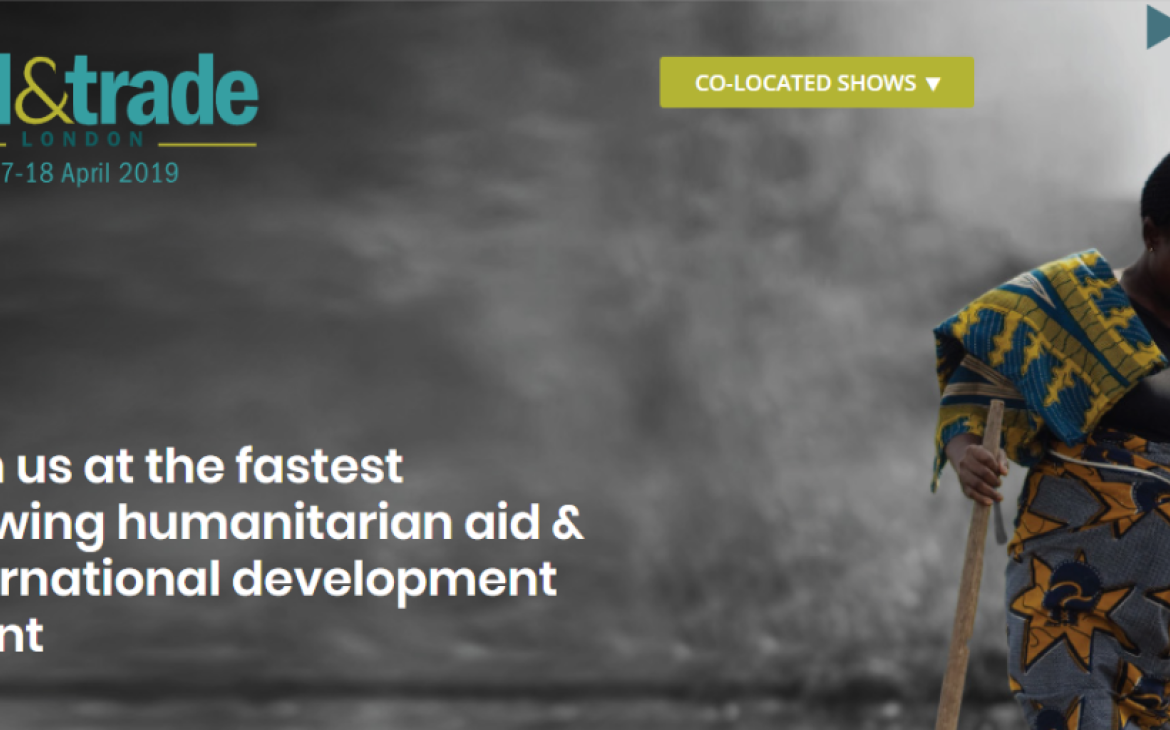Aid&Trade London is the platform that brings together all major stakeholders of the global aid and international development sector. Now into its third year, it is a premium two-day event that encompasses innovative conferences, workshops, and exhibitor stands and brings together thousands of visitors. The World Humanitarian Forum is being launched in 2019 in conjunction with Aid&Trade as an international knowledge exchange platform at the intersection of government, aid, development, future and innovation. Both events are conceived as an opportunity for governments, organisations and private sector leaders to showcase cutting-edge innovations, discuss global trends and unveil ground-breaking solutions to provoke discussion and inspire creativity.
Running over the course of two days – 17 and 18 April 2019, the events will be organized in seven thematic areas: ICT, logistics and fleet, innovation, energy, finance and funding, international development and human resources.
UNITAR team working on online learning and education for humanitarian and peacebuilding professionals will present at the two thematic theatres, focused around human resources and international development. The presentation will explore the challenges and need for inclusive education in the framework of the global Agenda for Sustainable Development with a particular attention to the Goal 4 of Quality Education and providing lifelong learning opportunities for all. It will be part of the Session 2: “Training for Humanitarian Aid Workers: Providing Effective Learning and Development Strategies and Opportunities to Improve Local Capacity and Skills”.
Dr. Jon-Hans Coetzer, Coordinator of Online Learning and Education Pillar at UNITAR, will reflect upon the ways to secure the active participation and learning success for all. The concept of inclusive education has been frequently criticized as constituting a neocolonial project and an unwelcome imposition on countries of the Global South. Furthermore, countries are expected to fund a model of inclusion developed in the resource-rich North, and thus current educational practices perpetuate colonial hierarchies. Responding to this critique, the presentation of Dr. Coetzer will aim to introduce a human/people-centred model of inclusive education that embraces both reflective and experiential learning, in line with the UNITAR’s distinctive methodology and instructional design.
This presentation is prepared and delivered in the framework of the ongoing UNITAR project related to the delivery of advanced academic programmes for practicing professionals in peacebuilding, security, humanitarian action, and electoral policy. Offered in partnership with accredited universities and based on online delivery mode, the programmes provide these dedicated practitioners with an opportunity to advance their career without suspending their much-needed work on peace and community wellbeing. A particular attention is given to learners coming from the Least Developed Countries (LDCs) as well as qualified female learners. Those and other qualified candidates in need benefit from the system of scholarships and financial aid.
To stay tuned and learn more about the topic of inclusive education for sustainable development, follow our social media accounts on Twitter, Facebook and LinkedIn as well as UNITAR page on Medium to read the full article in April.



